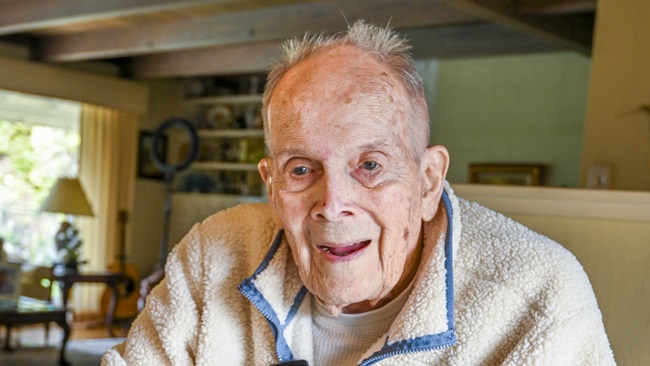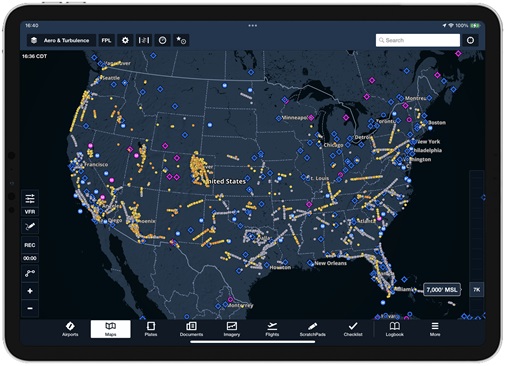AOPA's top advocacy accomplishments of 2018
While having fun at one of AOPA’s 2018 Fly-Ins, you may have missed out on some of our top advocacy accomplishments of 2018.
Talk about the best gifts pilots could ask for, and just in time for the holidays. Here are AOPA's top advocacy accomplishments of the year.
ATC 'privatization'
 For decades the airlines have been trying to wrestle control of ATC away from the FAA, and 2018 marked the closest they have come. If the proposed legislation had passed, it would have threatened the safest, busiest, and most complex airspace; cost tens of billions of dollars; been devastating for small airports; and created a “too big to fail” monopoly requiring taxpayer bailouts. More than 300 aviation organizations, state and local officials, airports, manufacturers, labor unions, businesses, management associations, and consumer groups stood united against the so-called “privatization” of ATC, but AOPA members also made a difference. Thanks to a relentless group of pilots, more than 200,000 phone calls, emails, and messages were sent to lawmakers, and the bill never made it to the floor of the House. Cheers to that!
For decades the airlines have been trying to wrestle control of ATC away from the FAA, and 2018 marked the closest they have come. If the proposed legislation had passed, it would have threatened the safest, busiest, and most complex airspace; cost tens of billions of dollars; been devastating for small airports; and created a “too big to fail” monopoly requiring taxpayer bailouts. More than 300 aviation organizations, state and local officials, airports, manufacturers, labor unions, businesses, management associations, and consumer groups stood united against the so-called “privatization” of ATC, but AOPA members also made a difference. Thanks to a relentless group of pilots, more than 200,000 phone calls, emails, and messages were sent to lawmakers, and the bill never made it to the floor of the House. Cheers to that!
FBO progress
 By now you’ve probably heard of AOPA’s egregious pricing and transparency initiative. For more than two years, the association has worked with pilots and the fixed-base operation industry to investigate the problem and work toward solutions that ensure publicly funded airports are open to all segments of aviation. So far, numerous airports have taken steps to improve their business plans by lowering prices, adding a second FBO, providing independent transient ramp space, or providing alternative walk-through gates. Most recently, five major aviation associations joined AOPA and released the “Know Before You Go” best business practices to enhance FBO transparency by encouraging the publishing of an online list of prices, fees, and charges that pilots may face when landing at an airport. The best business practices release aligns with FAA-issued guidance recommending FBOs make fees public.
By now you’ve probably heard of AOPA’s egregious pricing and transparency initiative. For more than two years, the association has worked with pilots and the fixed-base operation industry to investigate the problem and work toward solutions that ensure publicly funded airports are open to all segments of aviation. So far, numerous airports have taken steps to improve their business plans by lowering prices, adding a second FBO, providing independent transient ramp space, or providing alternative walk-through gates. Most recently, five major aviation associations joined AOPA and released the “Know Before You Go” best business practices to enhance FBO transparency by encouraging the publishing of an online list of prices, fees, and charges that pilots may face when landing at an airport. The best business practices release aligns with FAA-issued guidance recommending FBOs make fees public.
ADS-B Out rebate

Thanks to AOPA’s advocacy work, it looks like ADS-B Out is back in. Ahead of the January 2020 equipage deadline, the FAA reopened the ADS-B Out rebate, incentivizing even more pilots to adopt the new technology and keep our skies safer and more efficient. AOPA has worked with the FAA and manufacturers through the Equip 2020 Working Group to develop lower-cost solutions especially for pilots flying legacy aircraft. Pilots can claim the $500 rebate until Oct. 12, 2019, or until all 10,000 remaining rebates are claimed.
Flight training costs

Ask an engineer what makes an airplane fly, and he or she will give you a spiel on physics. Ask a pilot, and he or she will tell you it's money. GA pilots should celebrate new rule changes to Part 61 that will reduce the cost of flight training and proficiency requirements, saving GA pilots more than $110 million in the next five years. According to the new final rule, a technically advanced aircraft, like a Cirrus, could be used as a substitute for the traditional complex aircraft used for commercial and flight instructor checkrides. The new regulations recognize the effectiveness of modern technology and ease past restrictions on its use to further reduce the cost of flight training, as well as flight proficiency. AOPA has made it a priority to reduce the financial burden on students and certificated pilots, and many of the changes made by the FAA were at the request of AOPA.
Cross-border flying

Along with the FAA and NTSB, AOPA works closely with U.S. Customs and Border Protection (CBP). Life just got a whole lot easier for pilots and passengers flying to the Bahamas, Caribbean, Canada, Mexico, or Central America. Under updated procedures, holders of an overflight exemption will be able to operate all their authorized aircraft with any of their authorized crewmembers on overflight-exemption-based arrivals. Operators will no longer have to identify which crewmembers are participating. CBP also has begun to issue overflight authorizations from the Office of Field Operations at CBP headquarters. Previously, operators had to apply for permission from individual port directors who may or may not accept.
Non-TSO’d equipment

AOPA and other industry organizations have been working with the FAA and manufacturers on a wide range of instrument certification changes and as a result, more affordable products entered the market. New products welcomed in 2018 included the Dynon Skyview HDX and the Aspen Evolution 5. Additionally, TruTrak and Garmin have added more aircraft makes and models to existing STCs for products introduced this year.
Hawaii decriminalizes airport violations

Thanks to persistent efforts by AOPA, the Hawaii General Aviation Caucus, and other GA organizations, pilots in Hawaii are shouting mahalo! It’s no longer a criminal offense for pilots to park in the wrong spot or store golf clubs in T-hangars. One of the biggest state advocacy achievements of 2018 was the governor’s signature of Senate Bill 2619, which decriminalized pilots from charges that could result in the loss of clearances, effectively costing them their jobs.
Class B airspace reclassification

Thanks to AOPA’s persistence, the FAA implemented Class B airspace revocation, creating a process to allow conversion to less restrictive Class C airspace for airspace that no longer meets the criteria. The FAA also has established an internal working group to address the airspace issue to adopt recommendations produced by an RTCA Tactical Operations Committee to “develop criteria to identify where Class B airspace should be revoked.” There are approximately 10 Class B locations that could be reviewed under the new policy.
IAOPA World Assembly

The voice of GA has never been stronger following the IAOPA World Assembly in New Zealand. Leaders of the International Council of Aircraft Owner and Pilot Associations representing more than 400,000 GA aircraft owners and pilots convened in New Zealand in March to discuss challenges facing the GA community around the globe. With 175 delegates from 24 countries, the meeting had the largest delegate count to date.



